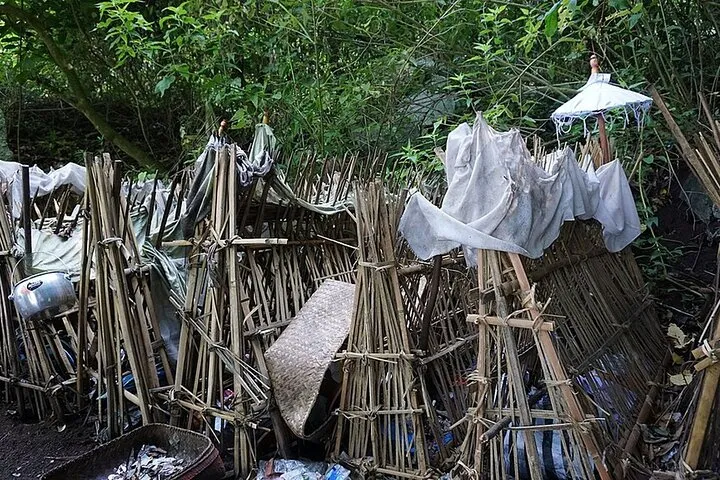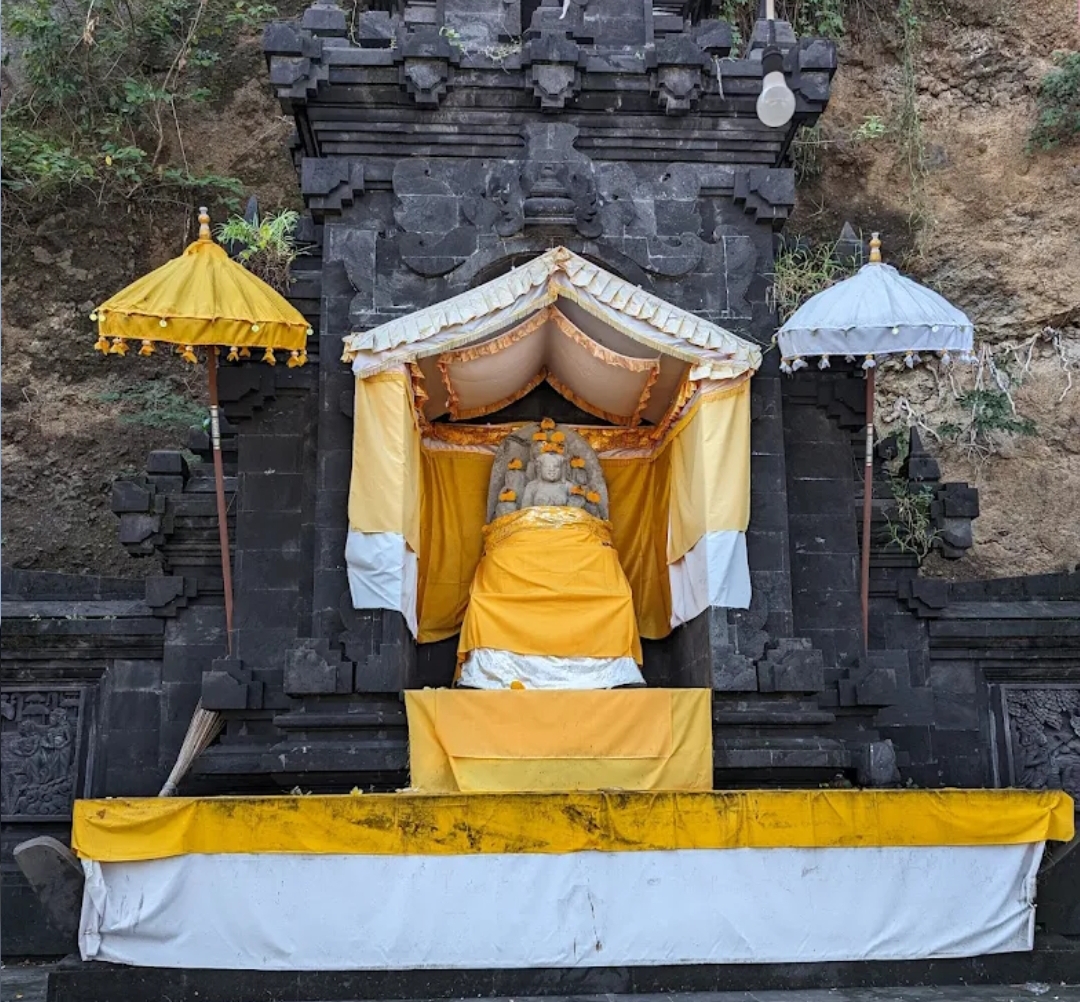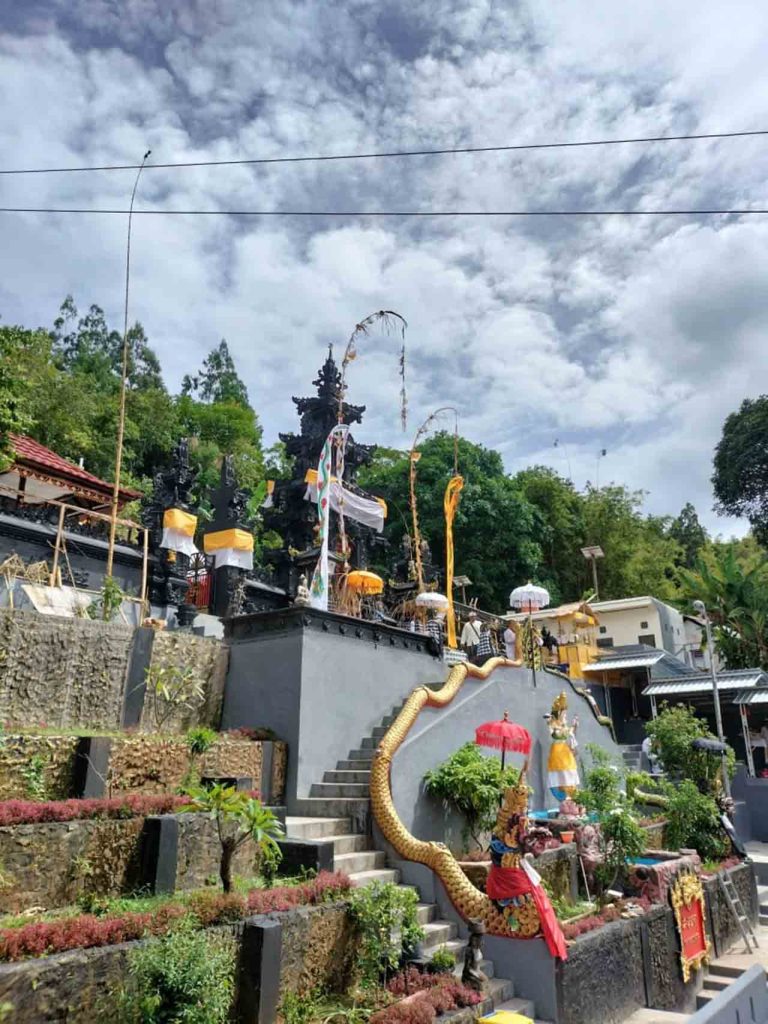Trunyan Village, located in Kintamani, Bangli Regency, Bali, is known for its extraordinary burial tradition.
Unlike typical Balinese cremation ceremonies, the people of Trunyan do not bury or cremate their deceased.
Instead, the bodies are placed openly beneath a sacred tree called the Taru Menyan, which naturally neutralizes any odor of decomposition.
A Burial Tradition Rooted in Ancient Beliefs
The burial custom of Trunyan has been practiced for centuries and is believed to originate from the indigenous Bali Aga people, who have lived in the area since prehistoric times.
The Taru Menyan tree, which grows exclusively in Trunyan, plays a crucial role in this tradition.
Its name is derived from the Balinese words “taru,” meaning tree, and “menyan,” meaning fragrant.
The tree emits a natural fragrance that masks the scent of decaying bodies, making the burial practice both unique and mystical.
The Rules and Regulations of Trunyan Burials
Not every deceased individual in Trunyan can be laid to rest beneath the Taru Menyan. Specific criteria must be met.
Only those who have died naturally, were married, and had a complete body are eligible for this special burial.
Additionally, the number of bodies allowed under the tree at any given time is limited to eleven.
Once a new body is placed, older remains are moved to make space while the skulls are arranged in an orderly manner nearby.
For those who do not meet the main burial requirements, Trunyan has two other cemeteries:
- Sema Muda – designated for children and unmarried adults.
- Sema Bantas – reserved for individuals who have died unnaturally or whose bodies are incomplete due to illness or accidents.
The Mystical Influence of Taru Menyan
One of the most fascinating aspects of Trunyan’s burial tradition is the absence of foul odor despite the exposed bodies.
This phenomenon is attributed to the powerful fragrance of the Taru Menyan tree, which has a natural ability to absorb and neutralize unpleasant smells.
The bodies, laid out with only a white cloth as a covering, remain undisturbed by insects, adding to the mystery and sacredness of the site.
A Living Legacy of Ancient Traditions
Beyond being a burial site, Trunyan embodies the deep connection between the Bali Aga people and their ancestors.
The practice reflects their respect for nature, spirituality, and the cycle of life and death.
Despite modernization and evolving cultural influences, the villagers of Trunyan continue to uphold this ancient tradition, preserving their heritage for future generations.
The Trunyan burial site remains a significant cultural landmark in Bali, attracting visitors intrigued by its history and spiritual significance.
While it serves as a testament to the island’s diverse traditions, it also reminds us of the sacred bond between humanity and nature that has been honored for centuries. (BT)
Image Source: Tiket.com





